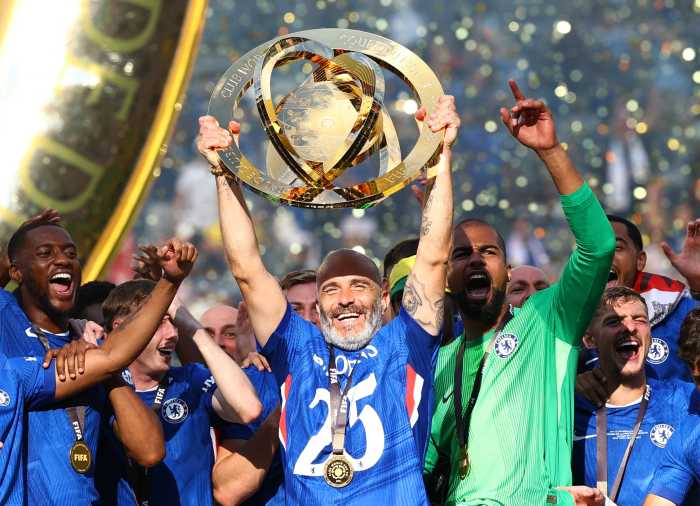A Dream Deferred
It’s been 50 years since Martin Luther King’s “I Have a Dream” Speech at the Lincoln Memorial. It was a sacred effort and the words and sentiments he spoke that day are grafted into the nation’s collective consciousness. The ideal of universal freedom is a uniquely American one and the struggle for civil rights under the shadows of slavery and Jim Crow is a compelling and courageous narrative in the volume of liberty in which King was a central figure.
African-Americans have made great strides toward equality under the law and are an integral part of America’s multi-cultural fabric. Over the last few decades their rise has been meteoric: In 1964, 26 percent of blacks graduated high school, now 85 percent do; in 1970 there were 1,469 black elected officials while today there are 10,500; a black middle class is a staple of society and from sports to politics to the entertainment industry discrimination against blacks is virtually non-existent.
Despite these great strides, African-Americans in general are languishing in some of the most important indicators that define success, stability and progress. With the dissolution of the family, violent crime and functional illiteracy plaguing its community, many blacks continue to dwell in the crescent of despair. Civil rights leaders stubbornly attribute these abasements to an insidious racism that has increasingly become a fading vestige of the past. Race peddlers such as Al Sharpton are not isolated like George Lincoln Rockwell, leader of the American Nazi Party in the 1960s, but are instead lionized by the media as icons for the great causes they show little interest in championing.
There is no metaphysical communion between Martin Luther King and Al Sharpton or even Jesse Jackson though the latter occasionally manages to say something worthwhile. Many civil rights leaders, hoisted on their thrones by the media, are shameless charlatans who have gained notoriety from race baiting and inciting divisiveness. The movement itself, despite its high ideals, has become ensnared by its own martial exuberance as race hucksters traduce the dream that for many has crumbled into nightmares of social pathology. The Civil Rights royalty sniffs into every nook and cranny for the whiff of white deviltry, ginning up rhetoric often curdled with maleficence but are silent about those afflictions that are truly creating havoc and thwarting progress.
Ignoring the metastasis of violence in the inner cities and the atomization of the family structure, the self-appointed civil rights leaders dicker instead with the ghosts of Bull Young and other segregationists that have as much relevance to the problems of contemporary society as the Norse gods. The brilliant black economist/sociologist Thomas Sowell, a much neglected muse, provides perspective when he writes that none of this is unique to the American Civil Rights movement. In various countries and times Sowell notes, leaders of groups that lagged behind educationally and economically have blamed all their problems on other people. This was the history of the anti-Semitic movements in Eastern Europe between the two World Wars, the anti-Ibo movements in Nigeria in the 1960s and the anti-Jamil movements that turned Sri Lanka into a bloody battleground that lasted decades and wafted in the inexpugnable stench of human atrocities.
America has spent hundreds of billions on social welfare programs disproportionately servicing minorities and has passed landmark legislation guaranteeing equal opportunity under the law. While personal racism will never be eradicated from the sinful human heart, institutional racism has melted away with the snows of yesteryear. Even as America elected its first African-American president in 2008, a stunning vindication of racial progress in the United States, blacks continue to struggle with higher unemployment and lower income levels.
While the poorly performing economy has hurt everyone except maybe the rich, its effects have especially mutilated the African-American community. Redistribution can temporarily sustain living standards but it can’t lift them permanently. Only a growing economy combined with a culture that has an orientation toward the future can accomplish that. The president cannot manage the economy from Washington, he can’t mother the economy and we cannot expect any population poorly educated and lacking skills in a technological society to fend for themselves. Such assets are the vital intestines of an employable population. In the inner cities our public schools have been polluted by union politics and the unseemly electoral ambitions of politicians have been complicit in fostering false hopes and expectations in return for establishing voting blocs that perennially ensure their return to office. The African-American population should look to themselves for their salvation and not to the poisonous patois of fast-talking charmers like Sharpton who have hijacked the movement for their own apotheosis.
But we are deluding ourselves with unexalted imaginings if we think that things will improve in the face of widespread illegitimacy, irresponsible fathers, glorifying the criminality of hip-hop ethos and the monopolization of public education. If you change nothing, nothing will change. Palavering and soft-soaping the problem only creates more problems; what’s needed is forthrightness and honesty on what promotes ascent and achievement. The black community does not need its self-serving elites or even the good intentioned who want to do something for the common folk because the common folk can do it for themselves. The sooner they absorb this fact the better off they will be.
As we celebrate the 50th anniversary of Martin Luther King’s monumental speech, and there is much to celebrate, we stand teetering on the precipice of which future to bless — that which has bureaucratically reduced black America to another form of vassalage or one defined by the verities of personal responsibility, hard work and the stick-to-itiveness that crowns a dignified success.


































